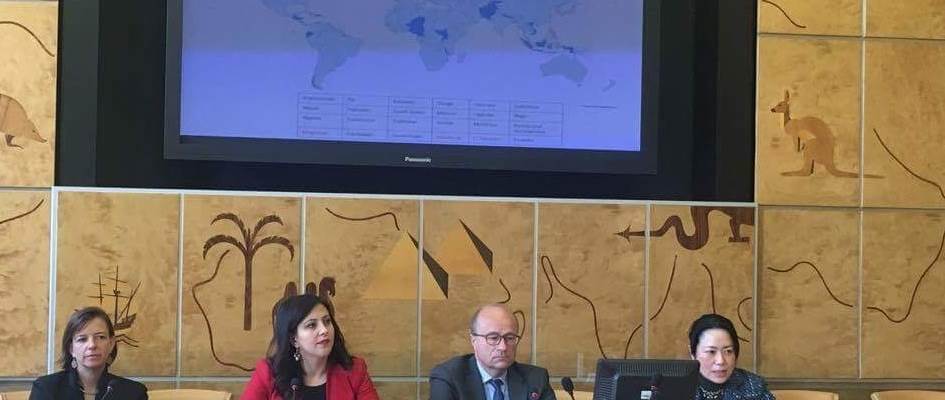Ambassador Hans Brattskar chaired the discussion. He reaffirmed Norway’s position on the importance of giving sufficient attention to the specific needs and vulnerabilities of women, and that women need to be actively involved and consulted in developing disaster risk reduction strategies.
The Sendai Framework for Disaster Risk Reduction (DRR) was adopted at the Third UN World Conference on Disaster Risk Reduction in March 2015. The framework underlines the importance of understanding disaster risk in all its dimensions of vulnerability, capacity, exposure and hazard. The integration of a gender perspective is crucial to ensure an accurate understanding of disaster risk.
The roundtable discussion pointed out that disaster risk is not equally shared. Gender disaggregated data on disaster risk is limited, only 10% of states reporting to the Hyogo framework for action provided gender disaggregated data. The evidence we do have however, show that women and girls are disproportionately impacted by disasters with fatality rates exceeding that of men.
Ms. Hiba Qasas, Chief of the newly established Crisis Prevention, Preparedness and Response office of UN Women in Geneva emphasized that to fulfil the promise of Sendai, and reduce disaster risk and losses in lives, livelihood and assets, we must collectively accelerate efforts to deliver concrete results for disaster affected women and girls and their communities. Without a gender perspective on our efforts, the Sendai targets will not be met.
Partnership is key to advance this agenda. UNWomen, UNISDR and IFRC have joined forces around a global initiative to support members address the high and unequal risk exposure of women and girls to the impact of disasters. The short title of the programme is: Gender Inequality of Risk (GIR)
The cooperation draws advantage from the strengths and mandates of the three organisations and targets four outcomes: (1) the gender dimension of risk is understood and assessed; (2) Disaster Risk Management (DRM) policy and risk governance is gender responsive; (3) women’s capacity to prevent, prepare for and recover from natural hazards in a changing climate is strengthened; and (4) women’s participation and leadership in disaster risk reduction and resilience building is strengthened.
Ms. Elise Baudot, Director of Policy, Strategy and Knowledge at the IFRC emphasized the advantage of a joint initiative from the three. This merging of expertise, access and experiences will ensure that the new global program, and the mechanism it provides, works to support countries as they invest to meet the targets of the Sendai Framework.
Ms. Shoko Arakaki, Chief, Regional Programme Coordination and National Implementation Support of the UNISDR highlighted the knowledge development aspect of the programme, the need for sex and age disaggregated data and capacity building and basic education of women, men, girls and boys.
UNISDR, IFRC and UN Women will launch the new Global Programme at the special session on 'Women leadership in DRR' at the Global Platform for DRR in Cancun in May this year. The Global Platform is a unique opportunity to call for integration of gender concerns into DRR governance and programming, all the more so, as the 2020 deadline for Sendai target E on developing or revising national and local disaster risk reduction strategies is fast approaching.
